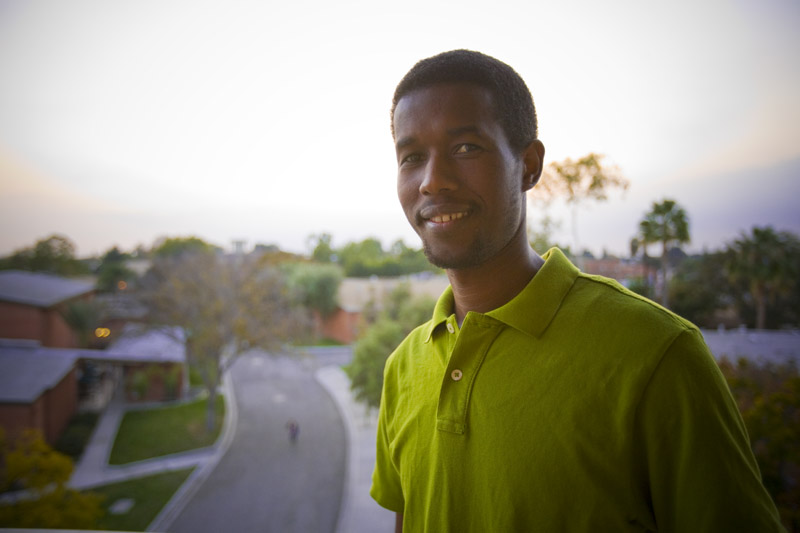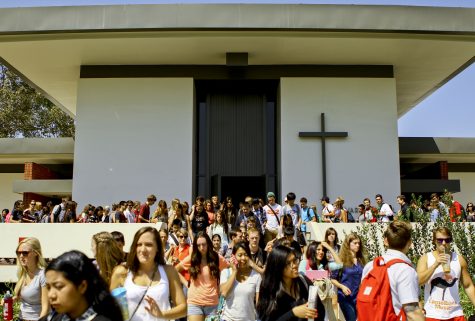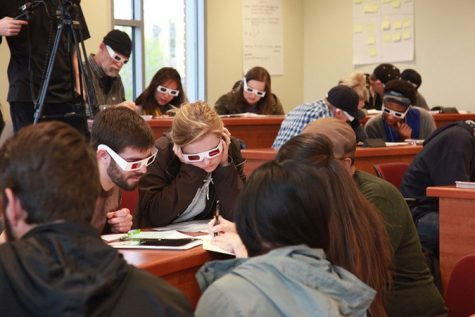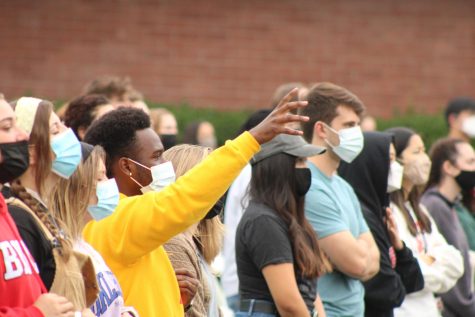Ethiopian grad student reflects on persecution in his country
Few have childhood memories like that of Biola graduate student Temene Yoseph Menna, whose life is a testimony of the suffering that Ethiopia has faced for so many years.
December 1, 2009
Few have childhood memories like that of Biola graduate student Temene Yoseph Menna, whose life is a testimony of the suffering that Ethiopia has faced for so many years.
Menna’s father was an Ethiopian minister during the harsh reign of the communist government in the country. His father was also put in prison numerous times,.
Several years after Menna’s father had begun his missionary ministry in Ethiopia, a communist government overthrew the Ethiopian royal throne. The new government opposed all religion and aimed to unify the country under its communist philosophy. The government especially targeted evangelical Christians and persecution was frequent. Menna testified to the rough transition from the old to the new government, and his father was put in prison numerous times as part of the persecution.
He said that the previous government had not necessarily approved of evangelical Christianity, but that it hadn’t persecuted those of that faith either. When the new communist government took over, it closed down many churches. Menna would go to school and would frequently be mocked by kids.
“Christians would be beaten and put in prison for no reason sometimes,” Menna said.
All this persecution significantly affected the faith of the evangelical Christians. He explained that the evangelical Christian church in Ethiopia was made an underground church during the time of the communist government’s reign.
“The Christians from those days were very much committed Christians.”
The persecution that the church faced was a filtering tool, where those who were not committed backslid from the faith while the persecution that committed evangelicals experienced helped them to grow and to become stronger in faith. Most of the church leaders in Ethiopia today lived through that period of persecution and were strengthened during that great trial. In direct contrast to those leaders is today’s Ethiopian youth, whom Menna described as “less passionate” and “less committed.”
“With the freedom (from persecution) came shallowness in faith and lack of commitment,” he said.
While that period of great suffering in Ethiopia ended 18 years ago, Menna knows of the suffering that is present even today. Just as in any other economically troubled country, the citizens of Ethiopia cannot afford the things that they could before. Having lived in America for the past four months, Menna feels that Americans share in this suffering as well.
There is also the burden of HIV/AIDS in Ethiopia. Although there is a high percentage of those directly affected by it, Menna cannot think of anyone that he personally knows who suffers from it because it is shameful to publicize it. Ethiopia is wrapped in a community-based culture, so even though the current government tries its best to provide necessary help and support, it is uneasy about doing so in a culture where people tend to hide their HIV/AIDS problems.
He explained that life for Ethiopians is a “group thing.” If one person did something right, that the whole group would be praised, and if one person did something wrong, the whole group would be shamed. Contracting HIV/AIDS is unacceptable in the culture. It is clear that HIV/AIDS carries with it not only physical suffering but also social suffering.
Suffering affects the way the people of Ethiopia see the rest of the world. Menna said that it seemed as if people in the west –- even though they have economic problems –- tend to be able to afford good medical care when they need it. And while the church may see the HIV/AIDS problem as an opportunity to minister to people, it is a more difficult issue for others.
One of Menna’s friends seriously wonders why God seemingly allows the West to thrive while he lets many Ethiopians remain poor. Poverty remains a difficult spiritual issue for Menna’s friend. On the other hand, Menna wonders if the materialism that is found in the West is a greater distraction than the needs in Ethiopia.
“For their every need, they depend on God,” he says when speaking of the poor in Ethiopia.
Today, Menna attends Biola, where he is finishing up his master’s program in Christian education and moving on to a doctorate program in Higher Education Leadership. Upon acquiring his doctorate, Menna will return to Ethiopia to offer his leadership at the Evangelical Theological College. The college, located in the capital city of Addis Ababa, is the largest theological college in Ethiopia. He believes that his insight on suffering will be a valuable tool in his leadership.







